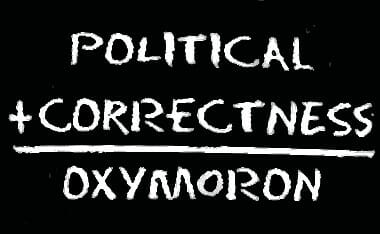See the transcript at Fox Nation.
Steven Crowder


Newsroom’s Anti-America Scene Bitch Slapped!
- This television tirade would be of no matter had it stayed in the dystopic universe that is Hollywood, but alas, the [I]nternet has pushed the statement across borders and time. The temptation to go line by line and deconstruct this outburst will be resisted, and would do little but add credence to the inanity. It is, naturally, what is not said that is more important, more enlightening, and more reasonable. (U.S. NEWS & WORLD REPORT)
(See more at Louder with Crowder)
A thorough slap down and rebuttal to Jeff Daniels’ viral anti-America Newsroom scene, in which he claims that America is not the greatest country in the world. Here are a few examples of the “bait-n-switch” associated with the Newsroom rant:
TWO QUICK EXAMPLES
“Seventh in literacy”
The CIA’s World Factbook has literacy estimates for the nations of the world. Wikipedia presents those statistics in a form that allows for easy interpretation. The literacy estimates actually put the U.S. back in the pack numerically, but taking ties into account allows for putting the U.S. at No. 7. The nations in the top 40 are all pretty close, well above 95 percent literate. Andorra, Liechtenstein and Luxembourg all report 100 percent literacy.
In other words, we are statistically tied for the front spot. Here is another great example:
“Twenty-second in science”
McAvoy’s speech offers few clues about what measure backed this claim. Scimago Lab ranks the U.S. a clear No. 1 in peer-reviewed science publishing. A study released in 2010 dealing with 15-year-old students from 65 nations placed the U.S. at No. 22 in scholastic science achievement.

We are, as a country, leading the way in science for the world. Now, I agree that public schools are part of the problem, as the stat used for the Newsroom rant suggests. And just as a note, many “independent” schools that are in the top percentile are not “religious” strictly, but are the fruition of religious people in the community following a classical educational (Trivium) philosophy from the Middle-Ages via the Catholic Church. So, for instance, Trinity Classical Academy in our valley is following a Trivium model founded by religious people… but the school would not be considered “religious” like a Baptist school.
But when these independent or even “Baptist” students take their SATs, they do well above the public school child, often times with less money spent per pupil. In fact, a direct correlation can be made since the founding of the Dept of Education… and it is as more money is spent on education in the public arena, the worse the outcome. Again, to be clear, money is not the issue. Another myth is that we spend more on the military than education… also not true. It is philosophy.
STARTING POINTS
The right approach
Statistically judging the greatest nation ought to involve looking for a nation that ranks consistently high in favorable categories and consistently low in unfavorable categories, with each category weighted as to relative importance. Important categories might include the size of the economy, worker productivity, quality of the education system, contributions to scientific research, charitable contributions, economic freedom and median income.
The U.S. ranks highly in each of those categories, even ones mentioned by McAvoy. And the U.S. ranks No. 1 in another category that speaks to the U.S. standing among the nations: net migration. More people come to the U.S. than to any other country.
We won’t seek to make the case that the U.S. is the greatest nation in the world. But McAvoy said, among other things, that no evidence supports the claim that the U.S. is the greatest nation in the world. To the contrary, the U.S. consistently ranks high in desirable national statistics and consistently low in undesirable ones. One can easily make a reasonable case for ranking the United States No. 1.
TWO MORE QUICK EXAMPLES
Here are a couple of “Deconstructions” via In the Margins: [Checking links…. this site is gone, so here below is all that exists on their post on this]:
Assertion #2: “We lead the world in only three categories. Number of incarcerated citizens per capita, number of adults to believe angels are real, and defense spending.”
False. The U.S. leads the world in a number of categories. Here are a few:
- GDP. The U.S. has the largest economy in the world.
- Military capability. As McAvoy points out, the U.S. spends a lot of money on its military. What he fails to mention is that those dollars haven’t been completed wasted, and that the country does possess considerable military might. One can easily argue that this isn’t a measure of a nation’s greatness (it’s obviously not on Zack’s list of criteria) but this isn’t what McAvoy is claiming. He’s asserting that the U.S. is only number one in those categories he lists. Now, if Sorkin wanted us to look upon McAvoy as a moron, it would be fine for the character to make a claim that’s so obviously false, but this doesn’t seem to be the intent.
- Nobel laureates. The U.S. has the greatest number of Nobel laureates by far (350). Only a few countries mage to break the 100 mark.
- Number of patents. At nearly 160,000, the U.S. leads the pack. It has almost as many patents as the #2 and #3 countries (Japan and Germany) put together.
- Number of immigrants. At 46 million, the U.S. has almost four times as many foreign-born citizens as the next country on the list (Russia).
- Number of Olympic medals. The U.S. has twice as many (about 2700) as the runner-up (Russia).
- Foreign aid donations. The U.S. gives $24 billion, almost twice as much as the runner-up (the UK).
Assertion #4: We No Longer Explore the Universe
This part of McAvoy’s rant is perhaps the most nonsensical. The character seems to hearkening to the day when millions of Americans spent the evening glued to their TV sets, watching U.S. astronauts set foot on terrain never before traversed by humankind. While it’s true that those days are gone—for the time being, anyway—the country continues to explore the universe as aggressively as ever. A few examples:
- Mars. Of the nine successful Mars missions this century, seven were launched by the U.S. Several are ongoing.
- The Solar System. The NEAR spacecraft explored the asteroid Eros. The Cassini-Huygens mission has performed over one hundred flybys of Saturn and Titan, returning specular photos and massive amounts of data.
- The Universe. The James Webb Space Telescope, Hubble’s successor, will be able to observe the formation of the first galaxies.
The fact that the general public knows little of these accomplishments makes them no less remarkable, and the notion of McAvoy being ignorant of them—given the manner in which the character is otherwise portrayed—simply makes no sense.
I partly agree with this one in the sense that our current administration has changed the philosophy of NASA:
…One of the more notorious of the administration’s outreach attempts was the failed NASA-Muslim outreach initiative. In July of 2010, NASA chief Charles Bolden said in an interview with Al-Jazeera,
“When I became the NASA administrator, (President Obama) charged me with three things. One, he wanted me to help re-inspire children to want to get into science and math; he wanted me to expand our international relationships; and third, and perhaps foremost, he wanted me to find a way to reach out to the Muslim world and engage much more with dominantly Muslim nations to help them feel good about their historic contribution to science, math and engineering.”
Former NASA chief Michael Griffin, who headed the space agency during George W. Bush’s second term, called the Muslim outreach initiative a “perversion” of the mission of NASA:
“NASA was chartered by the 1958 Space Act to develop the arts and sciences of flight in the atmosphere and in space and to go where those technologies will allow us to go,” Griffin said. “That’s what NASA does for the country. It is a perversion of NASA’s purpose to conduct activities in order to make the Muslim world feel good about its contributions to science and mathematics.”…
(TRUTH REVOLT — Tapson, Mark (March 7, 2018). Announcement: TruthRevolt Closing Shop. Truth Revolt. Retrieved April 15, 2018. WESTERN JOURNAL has the story)

And really this circles back around to public education as well. Since the teachers unions and the Dept. of Education are increasingly worried about aspects of education that have more to do with art and social engineering rather than reading, writing, math, science, of course they will fall from scholastic grace.
STATS IN MOVIE SICKO
This is nothing new mind you… this “bait-n-switch.” For instance in Michael Moore’s Sicko he talked up Cuba’s infant mortality rate as better than most countries in the world and attributed that [laughably] to their great health care. But here we notice some number fudging:
…Although Cuba claims to have low infant mortality rates, doctors have said the data is misleading because when there might be indications of problems with the fetus, there is a widespread practice of forced abortions.
Julio Alfonso said, “We personally used to do 70 to 80 abortions a day.” Yanet Sanchez, a Cuban exile, said she was simply told to submit to an abortion. “They told me I should end the pregnancy,” said Sanchez. “It was my very first pregnancy. I wanted to have the child.”
Other doctors have said that if a child dies a few hours after birth, they don’t count it as ever having lived, which ultimately makes infant mortality in Cuba look better than that of the United States…
(ABC NEWS)
It seems ABC removed the text about abortions…. so I found that REDDIT preserved the quote as well:
The same can be said of DENTAL CARE.
WAR ON THE POOR?
This small statement by RESTORING LIBERTY on the poverty example from the Newsroom rant is another example of how the “War-on-Poverty” is a sort of “War-on-the-Poor,” like the minimum wage is:
…“War on Poor People,” that’s what we have? If so, blame the class warfare and welfare state created by those that Sorkin supports and adores as heroes on the left. You want to start a “War on Poverty,” then deregulate, and reduce the tax burden on those doing the work and those starting the businesses that employ people. Make a competitive environment for business, instead of casting them as the enemy, and you will have jobs and prosperity, and sense of self worth instilled in your citizenry.
You don’t “fight” poverty anyway, you increase prosperity…
Yep, that is a distinction leftist Democrats do not get:
(Above video) Larry Elder gets the Lo-Down of where we stand after we spent 22-trilion on fighting poverty from Robert Rector, a leading authority on poverty, welfare programs and immigration in America for three decades, is The Heritage Foundation’s senior research fellow in domestic policy. See HIS ARTICLE ON THIS.
WAGE GAPS
I will end with another example of how gender equality at the World Economic Forum is misused to make a political point rather than a factual point:
The “Global Index of Peace” works in similar fashion to the Global Gender Gap Study sponsored by the World Economic Forum. Professor, scholar, and feminist, Christina Hoff Sommers explains where such endeavors go wrong:
We can see that the idea that women are paid less than men (.76-cents for every man’s dollar) is a FALSE STAT MISUSED by the like of Hollywood AND Democrats.

Curt Schilling Unplugged (ESPN Shite)

Steven Crowder vs. Social Justice Warriors (Updated w/ SJW Meltdown)
CAUTION, strong language… if you are easily offended, do not watch:
(Louder with Crowder’s Description) Our own Steven Crowder headed to the University of Massachusetts (UMass) yesterday to co-panel an event called “The Triggering” with Christina Hoff Sommers and Milo Yiannopoulos. Steven had hopes of telling a few jokes. You know, those words that form sentences with punchlines at the end? Well as bad luck would have it, a leftist protester, or social justice warrior (SJW) was having none of that. Crowder put him through the figurative meat grinder. Yeah, the bad luck wasn’t for Crowder so much of the formerly standing SJW who’s now vacuumed sealed. Buy him at your local deli.
The entire event can be viewed HERE
Some commentary from Young Cons seems appropriate:

It seems wherever conservative speaker Milo Yiannopoulos goes, he causes delicate little snowflakes to melt into puddles of leaky goo looking feverishly for their safe space after being confronted by views contrary to their own.
The most recent example of this phenomenon comes from Massachusetts where a feminist student completely lost her mind after Yiannopoulos said feminism is a cancer.
[….]
This woman is absolutely the poster child for the radical feminist movement. She has put the kind of silly nonsense they participate in on full display for the world to see.
I tend to agree with Yiannopoulos’ statement here. Look how much radical feminism has destroyed the family unit, and by extension, our whole culture and society.
That doesn’t mean I don’t think women should work outside of the home or some such nonsense. It means I feel that God made men and women different and those differences are beautiful.
When we function in our God given roles, our families and societies thrive. When we don’t, they fall apart.
Anyway, I foresee many memes in this woman’s future.

I foresee this woman hurting herself because all her efforts at “self-worth” by throwing everything she has into “worldly systems” will crumble… unless she gives her life to the greatest cause ever to grace this planet of ours — Jesus of Nazareth’s cause. The Good News.
The founder of Gospel for Life mentioned this truism (or Truism I should say):
- …because this world is ruled by Almighty God, ideologies built upon a lie will necessarily be accompanied by paranoia and frequently violence. When Christ sets free by the truth as it is in Him, only then is that person un-threatened by dissent. No wonder religious freedom is a Biblical idea, and with it the historic definition of tolerance.
Now… returning to Young Cons less-important point on MEMES, here is the first spoof ~ Udder Madness:

Justice Vs. Fairness ~ Louder With Crowder
Moonbattery H/T

Mass Shooting and Other Gun Myths!
Below are some updated videos inserted into this older post… the most recent being Steven Crowder’s rebuttal of VOX’s anti-gun propaganda video:
- (Louder with Crowder) Misrepresenting numbers, massaging “facts,” are tactics used by leftists daily. Misrepresentation is the secret ingredient in their half-caf soy latte. Leftists always have a pre-determined outcome in mind. In Vox’s case (like all leftists), TAINT GUN OWNERSHIP. Make gun owners look like out of control whack jobs with no hearts.
Also, this IS a good definition via the FBI:
✦ An FBI crime classification report from 2005 identifies an individual as a mass murderer if he kills four or more people in a single incident (not including himself), typically in a single location. SO, following VOX’s own criteria WITH this definition to help set boundaries… we are not even close to having one “every-other-month.”
This Uber driver just stopped a mass shooting (ehem, in Chicago) with his concealed weapon (for which he had a permit), via Breitbart:
On Friday, an Uber driver with a concealed carry permit thwarted an attempted mass shooting by pulling his own weapon and shooting a gunman who had opened fire in Chicago’s Logan Square.
Illinois Assistant State’s Attorney Barry Quinn verified that the driver “had a concealed-carry permit and acted in the defense of himself and others.”
According to the Chicago Tribune, the driver was watching “a group of people” walk in front of his car on North Milwaukee Avenue just before midnight when 22-year-old Everardo Custodio allegedly “began firing into the crowd.” The Uber driver pulled his own gun and “fired six shots at Custodio,” wounding him in “the shin, thigh, and lower back.”
The attempted mass shooting ended with no one other Custodio injured….
In his June 18, 2015, remarks from the White House, Obama said, “Now is the time for mourning and for healing. But let’s be clear: At some point, we as a country will have to reckon with the fact that this type of mass violence does not happen in other advanced countries. It doesn’t happen in other places with this kind of frequency. And it is in our power to do something about it.” (Politifact)
(Obama’s most recent remarks are in the video, above/right.)
Obama, as usual, tries to rewrite history by his word. Here Fox lays out some of the stats in regard to this statement of “faith.”
….In the November attacks, 129 people were killed and 352 were injured. In just 2015, France suffered more casualties – killings and injuries – from mass public shootings than the U.S. has suffered during Obama’s entire presidency (508 to 424). This number includes the San Bernandino massacre on Wednesday.
Obama also overlooks Norway, where Anders Behring Breivik used a gun to kill 67 people and wound 110 others. Still others were killed by bombs that Breivik detonated. Of the four worst K-12 school shootings, three have occurred in Europe. Germany had two of these — one in 2002 at Erfut and another in 2009 at Winnenden, with a total death toll of 34.
Obama isn’t correct even if he meant the frequency of fatalities or attacks. Many European countries actually have higher rates of death from public shootings that resulted in four or more murders. It’s simply a matter of adjusting for America’s much larger population.
Let’s look at mass public shootings from 2009 to the middle of June this year. To compare fairly with American shootings, I excluded attacks that might be better classified as struggles over sovereignty. For instance, I did not count the 22 people killed in the Macedonian town of Kumanovo last month.
Norway had the highest annual death rate, with 2 mass public shooting fatalities per million people. Macedonia had a rate of 0.38, Serbia 0.28, Slovakia 0.20, Finland 0.14, Belgium 0.14, and the Czech Republic 0.13. The US comes in No. 8 with 0.095 mass public shooting fatalities per million people. Austria and Switzerland are close behind.
In terms of the frequency of attacks, the United States ranks ninth, with 0.09 attacks per million people. Macedonia, Serbia, Switzerland, Norway, Slovakia, Finland, Belgium, and the Czech Republic all had higher rates.
There are two other studies on these questions that have gotten a fair amount of attention.
One, by State University of New York-Oswego public justice professor Jaclyn Schildkraut and Texas State University researcher H. Jaymi Elsass, who look at shootings across countries, has left out a large number of shootings in other countries.
Yet, despite the extensive news coverage their study has received, they miss a lot of cases. For example, in France, they miss three mass public shootings:
- Tours, France, October 29, 2001: four people were killed and 10 wounded when a French railway worker started killing people at a busy intersection in the city.
- Nanterre, France, March 27, 2002: a man kills eight city councilors after a city council meeting.
- Toulouse, France, March 19, 2012, Mohammed Merah killed four people (the killer also killed people in Montauban, France).
Other cases are missed in such countries as Austria, Belgium, Finland, Netherlands, Italy, Macedonia, Spain, Switzerland and Slovakia.
It takes a lot of time and effort to find all the cases, but if you get all the attacks in the U.S. and miss those in other countries, it makes the U.S. look a lot worse…
Crowder likewise showed that the “Gun Show Loophole” exists only in the leftists mind:
Here is a great video by Encounter Books:
From the video description:
The right to keep and bear arms has always been central to the American identity. The American Revolution was sparked by British attempts to confiscate guns. After the Civil War, America changed the Constitution to defeat America’s first gun control organization, the Ku Klux Klan. When Hitler and Stalin demonstrated how gun registration paves the way for gun confiscation which paves the way for genocide, Americans resolved to make sure it never happens here.
Gun control is not an issue of left vs. right, or urban vs. rural. Liberal icons such as Hubert Humphrey and Eleanor Roosevelt recognized the right to arms as fundamental to preventing large-scale tyranny by criminal governments, and small-scale tyranny by ordinary criminals. Barack Obama’s gun control program is founded on disinformation, and is a direct assault on the Constitution.
To learn more read The Truth about Gun Control, by David B. Kopel.
BTW ~ even Bernie Sander’s understands the goal of the left:
In the aftermath of more mass shootings, Bill Whittle tackles gun control, rebutting progressives call for stricter measures.

Why Republicans DESERVE To Lose

Steven Crowder Interviews Walt Heyer
See my Transgender Page
Sex Change Regrets With Former Transgender, Walt Heyer. Learn more about Walt at http://www.sexchangeregret.com.

Sargon of Akkad’s Skepticism Is Nothing Special
I was listening to Steven Crowder and “Sargon of Akkad” talk about various subjects… and then it got onto the Bible.
Typical things like presuppositions about miracles being impossible stated BEFORE saying the miraculous life of Jesus is impossible… but before getting into more of the miraculous and Mithra’ism, I want to deal with an issue of Sargon’s name and his affinity to Zeitgeist. Sargon of Akkad is said to be a story that many years later the Story of Moses in Exodus 2:1-10, which reads:
And there went a man of the house of Levi, and took to wife a daughter of Levi. And the woman conceived, and bare a son: and when she saw him that he was a goodly child, she hid him three months. And when she could not longer hide him, she took for him an ark of bulrushes, and daubed it with slime and with pitch, and put the child therein; and she laid it in the flags by the river’s brink. And his sister stood afar off, to wit what would be done to him. And the daughter of Pharaoh came down to wash herself at the river; and her maidens walked along by the river’s side; and when she saw the ark among the flags, she sent her maid to fetch it. And when she had opened it, she saw the child: and, behold, the babe wept. And she had compassion on him, and said, This is one of the Hebrews’ children. Then said his sister to Pharaoh’s daughter, Shall I go and call to thee a nurse of the Hebrew women, that she may nurse the child for thee? And Pharaoh’s daughter said to her, Go. And the maid went and called the child’s mother. And Pharaoh’s daughter said unto her, Take this child away, and nurse it for me, and I will give thee thy wages. And the woman took the child, and nursed it. And the child grew, and she brought him unto Pharaoh’s daughter, and he became her son. And she called his name Moses: and she said, Because I drew him out of the water.
This story is referenced in many atheist rejections of Scripture. Here is one post at Debunking Atheism that deal with the topic:
…it [the movie Zeitgeist — see my rebuttle to it here] goes on to make similar claims about the story of Moses,
There is the plagiarized story of Moses. Upon Moses’ birth, it is said that he was placed in a reed basket and set adrift in a river in order to avoid infanticide. He was later rescued by a daughter of royalty and raised by her as a Prince. This baby in a basket story was lifted directly from the myth of Sargon of Akkad of around 2250 b.c. Sargon was born, placed in a reed basket in order to avoid infanticide, and set adrift in a river. He was in turn rescued and raised by Akki, a royal mid-wife.
Zeitgeist makes the claim that the ancient king Sargon was placed in a basket to “avoid infanticide” and is later found by a royal mid-wife. The claim then becomes that since Sargon lived before Moses then therefore Moses must have plagiarized the story.
There is indeed a famous story of Sargon being left in a basket on the Euphrates river preserved in cuneiform tablets of Ancient Assyria. The cuneiform tablet says,
Sargon, mighty king, king of Agade, am I. My mother was a high priestess, my father I knew not; My father’s brothers live in the mountains; My city is Azupiranu, situated on the banks of the Euphrates My mother, the high priestess, conceived me, in secret she bore me; She placed me in a basket of rushes, she sealed the lid with bitumen; She cast me into the river which did not rise over me; The river bore me up and carried me to Aqqi, the water-drawer. Aqqi, the water-drawer, lifted me out as he dipped his bucket; Aqqi, the water-drawer, adopted me, brought me up; Aqqi, the water-drawer, set me up as his gardener. As a gardener, Ishtar, loved me; For 55 years I ruled as king.
The similarity to Moses is obvious to anyone who has read both the story of Moses and the legend of Sargon. But a carefull reading shows that the film, Zeitgeist, in its description of the similarities between the two stories is actually exaggerated.
The claim that Sargon’s mother placed him in the basket and set him adrift to save him from infanticide is actually unsubstantiated. Nowhere in the inscription does it say that she did it to save him from anything or anyone. It just simply says she set him adrift. And the way that the tablet says “she [his mother] cast me into the river” kind of gives the impression that this is a case of child abandonment rather than to save his life.
James Holding in his essay gives background information of the importance of Sargon’s mother being a high priestess. He points out that in order to maintain her position she had to avoid pregnancy. This therefore would account for her giving birth in secrecy and would indicate that she was just disposing of her unwanted newborn child.
The fact that the story says she set him adrift also indicates she didn’t care whether or not he survived. This is a major difference between the two stories. — Contrary to what Cecil B. DeMille’sThe Ten Commandments shows, even though Moses was placed in a basket on the Nile river, he was not set adrift. Exodus 2: 3, 4 says that he was placed at the edge of the river among the reeds and his sister “stood” at a distance to watch him. The reeds would have kept the basket from drifting away. He was meant to survive which is not seemingly the case with Sargon….
Take note as well that Exodus is written well before the first accounts of this story that is supposedly plagiarized:
- The date of the Biblical exodus-conquest is clear. 1 Kgs 6:1 and 1 Chr 6:33–37 converge on a date of 1446 BC for the exodus and the Jubilees data and Judg 11:26 independently converge on a date of 1406 BC for the beginning of the conquest. The 1406 BC date is further confirmed by archaeological data from Jericho, Ai (Kh. el-Maqatir) and Hazor. In the end, Hoffmeier’s response has served to reinforce my earlier conclusion that “there is no valid evidence, Biblical or extra-Biblical, to sustain it.” The theory is a scholarly construct popularized by William F. Albright in the mid-20th century. It is not supported by Biblical or extra-Biblical texts and has lost its presumed archaeological underpinnings, thus has no place in contemporary Biblical scholarship.
Here is another fine article about the dating of Exodus. Whereas the first known reference to Akkad’s story is found in fragments in the Library of Ashurbanipal from the 7th century BC. So much like you will see below with Mithra’ism… the legend POST-DATES the Biblical record and thus it is VERY possible that the plagiarism is the other way around.
Onto Miracles and other positions taken explicetly or implicetly by Sargon.
Miracles and Bias
Professor: “Miracles are impossible Sean, don’t you know science has disproven them, how could you believe in them [i.e., answered prayer, a man being raised from the dead, etc.].”
Student: “for clarity purposes I wish to get some definitions straight. Would it be fair to say that science is generally defined as ‘the human activity of seeking natural explanations for what we observe in the world around us’?”
Professor: “Beautifully put, that is the basic definition of science in every text-book I read through my Doctoral journey.”
Student: “Wouldn’t you also say that a good definition of a miracle would be ‘and event in nature caused by something outside of nature’?”
Professor: “Yes, that would be an acceptable definition of ‘miracle.’”
Student: “But since you do not believe that anything outside of nature exists [materialism, dialectical materialism, empiricism, existentialism, naturalism, and humanism – whatever you wish to call it], you are ‘forced’ to conclude that miracles are impossible”
Norman L. Geisler & Peter Bocchino, Unshakable Foundations: Contemporary Answers to Crucial Questions about the Christian Faith (Minneapolis, MN: Bethany House, 2001), 63-64.
This commitment to materialism is referenced in one of the best books about the Jesus Seminar:
Philosophical Naturalism and the Modern Worldview
The second modern factor that has contributed to the widespread understanding that religious belief is private, practical, and relative, and need not be related to truth and reason is the widespread acceptance of philosophical naturalism as an expression of scientism. Philosophical naturalism is the idea that reality is exhausted by the spatio-temporal world of physical entities that we can investigate in the natural sciences. The natural causal Fabric of physical reality within the boundaries of space and time is all there is, was, or ever will be. The supernatural doesn’t exist except, perhaps, as a belief in people’s minds. On this view, religious beliefs are simply ways of looking at things in our search for meaning and purpose; they are not ideas that correspond to a mind-independent reality.
Philosophical naturalism is an expression of an epistemology (i.e., a theory of knowledge and justified or warranted belief) known as scientism. Scientism is the view that the natural sciencesare the very paradigm of truth and rationality. If something does not square with currently well-established beliefs, if it is not within the domain of entities appropriate for scientific investigation, or if it is not amenable to scientific methodology then it is not true or rational. Everything outside of science is a matter of mere belief and subjective opinion, of which rational assessment is impossible. Applied to the question of the historical origins of Christianity, scientism implies that since we live in the modern scientific world where the sun is the center of the solar system, the wireless is available for our use, and the atoms power has been harnessed, we can no longer believe in a biblical worldview with its miracles, demons, and supernatural realities.
Obviously, it is impossible in the brief space of an introduction to critique adequately scientism and naturalism. Still, a few cursory remarks need to be expressed.
(1) Scientism is simply false for three reasons. (a) It is self-refining, i.e., it falsifies itself. Why? Scientism is itself a statement of philosophy about knowledge and science; it is not a statement ofscience itself. Moreover, it is a statement of philosophy that amounts to the claim that no statements outside scientific ones, including scientism itself (because it is a statement of philosophy), can be true or supported by rational considerations. (b) Science itself rests on a number of assumptions: the existence of a theory-independent external world, the orderly nature of the external world, the existence of truth and the reliability of our senses and rational faculties to gather truth about the world in a trustworthy manner, the laws of logic and the truths of mathematics, the adequacy of language (including mathematical language) to describe the external world, the uniformity of nature, and soon. Now, each one of these assumptions is philosophical in nature. The task of stating, criticizing, and defending the assumptions of science rests in the field of philosophy. Scientism fails to leave room for these philosophical tasks and, thus, shows itself to be a foe and not a friend of science. (c) There are many things we know in religion, ethics, logic, mathematics, history, art, literature, and so on that are simply not matters of science. For example, we all know that two is an even number, that Napoleon lived, that torturing babies for fun is wrong, that if A is larger than B and B is larger than C, then A is larger than C, and so on. None of these items of knowledge are scientific in nature, and scientism is falsified by their reality.
(2) Philosophical naturalism is false as well. For one thing, philosophical naturalism rules out the existence of a number of things that do, in fact, exist. And while we cannot defend their existence here, suffice it to say that, currently, a number of intellectuals have offered convincing arguments for the reality of universals and other abstract objects such as numbers, the laws of logic, values, the soul and its various mental states (including the first person point of view), other minds, libertarian or full-blown freedom of the will, and so on. None of these items can be classified as mere physical objects totally within the causal fabric of the natural spatio-temporal universe. In fact, it is not an exaggeration to say that there is not a single issue of importance to human beings that is solely a matter of scientific investigation or that can be satisfactorily treated by philosophical naturalists.
(3) Philosophical naturalism fails to explain adequately the fact that there are a number of arguments and pieces of evidence that make belief in God more reasonable than disbelief. Some of this evidence actually comes from science: the fact that the universe had a beginning based on the Big Bang theory and the second law of thermodynamics, the existence of biological information in DNA that is closely analogous to intelligent language and that cannot arise from the accidental collisions of physical entities according to laws of nature, the reality of the mental and of free will according to a number of emerging psychological theories of the self, the delicate fine-tuning of the universe, and so on.”
Like it or not, a significant and growing number of scientists, historians of science, and philosophers of science see more scientific evidence now for a personal creator and designer than was available fifty years ago. In light of this evidence, it is false and naive to claim that modern science has made belief in the supernatural unreasonable. Such a view can be called ostrich naturalism—a position that requires its advocate to keep his or her head in the sand and not to acknowledge real advances in science. The plain truth is that science itself makes no statements about all of reality anyway, nor does science itself offer any support for philosophical naturalism. What does support philosophical naturalism are the ideological claims of naturalists themselves regarding what science ought to say if we assume philosophical naturalism to begin with.
In sum, it matters much that our religious beliefs are both true and reasonable. Moreover, there simply are no sufficient reasons for not believing in the supernatural, and there are in fact a number of good reasons (including but going beyond scientific ones) for believing in the supernatural. As we have said, space considerations do not permit us to defend this last claim here. But we will list some sources in the bibliography that adequately justify this claim. If you are an honest inquirer about the truth of religion, moral and intellectual integrity unite in placing a duty on you to read these works as a sincere seeker of the truth. It is well past time to rest content with the politically correct, unjustified assertions of scientism and philosophical naturalism. University libraries are filled with books that show the weaknesses of these views, and the fellows of the Jesus Seminar show virtually no indication that they have so much as interacted with the arguments they contain, much less have they refuted their claims.
Regarding Jesus of Nazareth, all of this means the following: Prior to investigating the historical evidence about his life, deeds, sayings, and significance, there is no good reason to bring to the evidence a prior commitment to naturalism. As later chapters will show, such a commitment is Procrustean in that it often forces the evidence of history to fit an unjustified anti-supernatural bias. But when the evidence is evaluated on its own terms, and when such an evaluation is combined with the rigorous case for supernatural theism already available in the literature, then the claims of historic, orthodox Christianity can be reasonably judged to be true.
Michael J. Wilkins, ed., Jesus Under Fire: Modern Scholarship Reinvents the Historical Jesus (Grand Rapids, MI: Zondervan, 1996), 8-10.
Mithraism
Another small point made (Mithraism is stated specifically later in convo) was about mythical religions being the source of much of Christianity. This is the “Zeitgeist” Effect, and is easily disproved… which I have posted a rebuttal of here. But to correct Sargon’s use of Mitrhaic religion… it post dates Christianity. Here is a good short refutation showing that there is no historical evidence to prove Mithraism as Sargon postulates PRE-DATES Christianity:
The most popular hypothesis holds that Roman soldiers encountered this religion during military excursions to areas known today as Iran and Iraq. For many years scholars believed that the Roman mystery cult was based on the ancient Persian god, thus predating Christianity. This assumption begins with early twentieth-century Belgian archaeologist and historian Franz Cumont (cf. Cumont’s book The Mysteries of Mithra).
While Cumont’s work is regarded as pioneering in the field, many recent scholars have challenged his assumption. According to John Hinnells at the First International Congress of Mithraic Studies held in 1971, “We must now conclude that [Cumont’s] reconstruction simply will not stand. It receives no support from the Iranian material and is in fact in conflict with the ideas of that tradition as they are represented in the extant texts. Above all, it is a theoretical reconstruction which does not accord with the actual Roman iconography” (John R. Hinnells, Mithraic Studies, vol. 2, “Reflections on the bull-slaying scene”).
Manfred Claus, a professor of ancient history at the Free University of Berlin, also supports this position: “The mysteries cannot be shown to have developed from Persian religious ideas, nor does it make sense to interpret them as a forerunner of Christianity” (The Roman Cult of Mithras, p. 7).
In the link leading to my post on this stuff I have pages from a book showing the dates of the VERY popular reliefs used by skeptics to show that Christianity stole from Mithraism… the only proble? The POST-DATE Christianity:
If one reads that scholarly chapter they will come away with a changed position via historical evidences and not the slush found on skeptical websites. However, I just wanted to note Sargon’s reference to Second Kings 18:13 by having professor Archer lay out the issue referenced:
Second Kings 18:13 in the Masoretic text states: “Now in the fourteenth year of King Hezekiah, Sennacherib king of Assyria came up against all the fortified cities of Judah and seized them.” Since Sennacherib’s own record in the Taylor Prism establishes 701 B.C. as the date of that invasion, the four¬teenth year of Hezekiah would mean that he did not ascend the throne until 715 B.C. Yet 2 Kings 18:1 (the very same chapter, be it noted) states that Hezekiah became king in the third year of Hoshea king of Israel—which comes out to 729 or 728. This would have been the year in which he was crowned as subordinate king, under his father Ahaz (who did not die until 725). The Masoretic text of 2 Kings 18:13 therefore stands in clear con¬tradiction to 18:1,9, and 10, which confirm that Hezekiah’s fourth year was Hoshea’s seventh and that Hezekiah’s sixth was Hoshea’s ninth (i.e., 722 B.c.).
Gleason L. Archer, Encyclopedia of Biblical Difficulties (Grand Rapids, MI: Zondervan Publishing House, 1982), cf. 2 Kings 18:13, 211.
BEFORE I go any further… I want to point out how minor this mistake (and subsequent correction) is. It does not do anything to the integrity of the Bible, its message, or it’s historical soundness. Even someone who is seen as dealing the biggest blow to textual studies as of late, Bart Ehrman, even he acknowledges nothing he has written deterioates the main theisis and message of Christianity or the Bible:
In the appendix to Misquoting Jesus, added to the paperback version, there is a Q&A section. I do not know who the questioner is, but it is obviously someone affiliated with the editors of the book. Consider this question asked of Ehrman:
- Bruce Metzger, your mentor in textual criticism to whom this book dedicated, has said that there is nothing in these variants of Scripture that challenges any essential Christian beliefs (e.g., the bodily resurrection of Jesus or the Trinity). Why do you believe these core tenets Of Christian orthodoxy to be in jeopardy based on the scribal errors you discovered in the biblical manuscripts?
Note that the wording of the question is not “Do you believe…” but “Why do you believe these core tenets of Christian orthodoxy to be in jeopardy…?” This is a question that presumably came from someone who read the book very carefully. How does Ehrman respond?
- The position I argue for in Misquoting Jesus does not actually stand at odds with Prof. Metzger’s position that the essential Christian beliefs are not affected by textual variants in the manuscript tradition of the New Testament.
Suffice it to say that viable textual variants that disturb cardinal doctrines found in the NT have not yet been produced.
Daniel B. Wallace, Revisiting the Corruption of the New Testament (Grand Rapids, MI: Kregal Publications, 2011), 54-55.
Again, many skeptics do not get Bart’s work in total (see: Agnostic -Bart Erhman- Debates Atheist About Jesus’ Existence).. that aside, let’s explore a simple explanation. Here Dr. Geisler explains:
PROBLEM: 2 Kings 18:13 claims that “in the fourteenth year of King Hezekiah, Sennacherib king of Assyria came up against all the fortified cities of Judah and took them.” Since archaeological evidence has established Sennacherib’s invasion at 701 B.C., this would mean that Hezekiah became co-regent with his father Ahaz in 719 B.C., and sole ruler of Judah in 715 B.C. However, according to 2 Kings 18:1, Hezekiah became co-regent in 729 B.C., and he became sole ruler of Judah when his father died in 725 B.C. This is a discrepancy of ten years. Which account is correct?
SOLUTION: The claim that Sennacherib invaded Judah in the fourteenth year of Hezekiah is clearly a copyist error. Sennacherib actually invaded Judah in the twenty-fourth year of the reign of Hezekiah of Judah. The error is easy to explain since the difference between the two numbers is a single Hebrew letter. The Hebrew consonants for “fourteen” are rb srh, while the Hebrew consonants for “twenty-four” are rb srm (the ancient manuscripts did not write the vowels, see Appendix 2). The final letters are the only difference in the written text. In fact, the words are the same, only the word “twenty” is simply the plural form of the word “ten.” We might express the way the Hebrew is written as “four ten,” or “four twenty.” It is simply a case where a copyist miscopied the form from “four twenty” to “four ten.”
Norman L. Geisler and Thomas A. Howe, When Critics Ask : A Popular Handbook on Bible Difficulties (Wheaton, Ill.: Victor Books, 1992), 197.
If a skeptic thinks this interferes with inerrancy… they are sadly mistaken. And of course Crowder is correct to point to the discoveries from archaeology that support the Bible… this set of verses are not excluded from this either. Much like my other examples of challenges… they fall woefully short of the simple beginning bias/presuppositions of those like Sargon’s — a presupposition not unlike Dr. Lewontin’s:
Naturalism and materialism are not scientific conclusions; rather, they are scientific premises. They are not discovered in nature but imposed upon nature. In short, they are articles of faith. Here is Harvard biologist Richard Lewontin: “We take the side of science in spite of the patent absurdity of some of its constructs, in spite of its failure to fulfill many of its extravagant promises of health and life, in spite of the tolerance of the scientific community for unsubstantiated just-so stories, because we have a priori commitment, a commitment — a commitment to materialism. It is not that the methods and institutions of science somehow compel us to accept a material explanation of the phenomenal world, but, on the contrary, that we are forced by our a priori adherence to material causes to create an apparatus of investigation and a set of concepts that produce material explanations, no matter how counter-intuitive, no matter how mystifying to the uninitiated. Moreover, that materialism is an absolute, for we cannot allow a Divine Foot in the door.”
Dinesh D’Souza, What’s So Great about Christianity (Washington, DC: Regnery Publishing, 2007), 161.
(See More)

Gun Show “Loophole” Exposed!
Buzz words like the “gun show loophole” seem to be all the rage these days. But is there any truth to it at all? Does the myth hold water? We go undercover to find out…

Mediocre Fascists
If you think Bernie Sanders is a hero, harm yourself. He is, in fact, a fascist with bad hair. Worse than Trump’s by the way. So Trump has that going for him. Which is nice. Aside from his tax plan which we’ve already thoroughly debunked, my biggest beef is how Sanders is selling himself. He’s telling everyone he’s “for the people.” But that is, in fact, a giant lie.
“Fascism” is a pretty fun catch word in today’s politics. Usually applied to extreme “right-wingers”, allow me to make a case for why Bernie Sanders is the most fascist candidate of them all…

TYT 2nd Amendment Rebuttle ~ Steven Crowder
A thorough rebuttal to Cenk Uygur’s (host of “TYT” The Young Turks) anti-Second Amendment video. Including facts and sources. You’re welcome!

